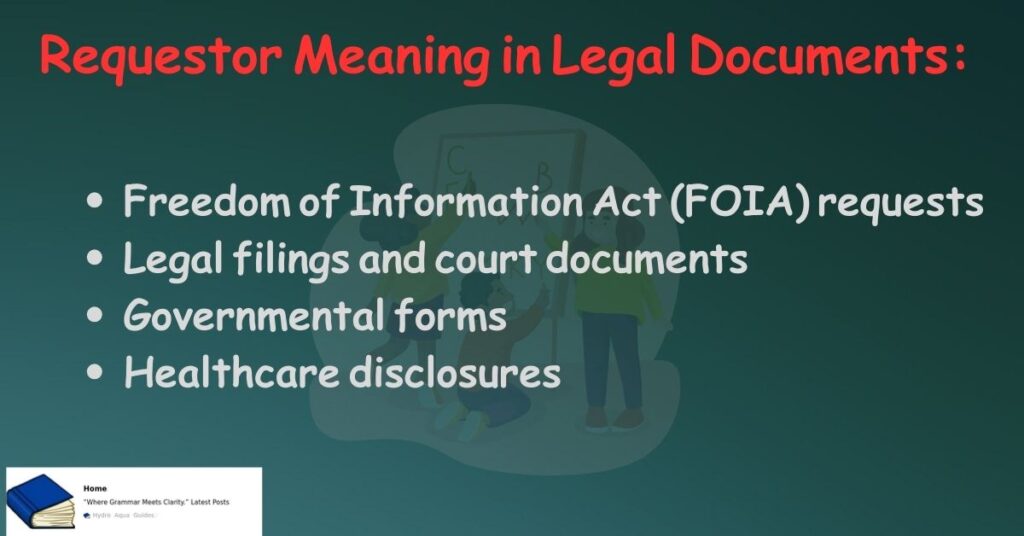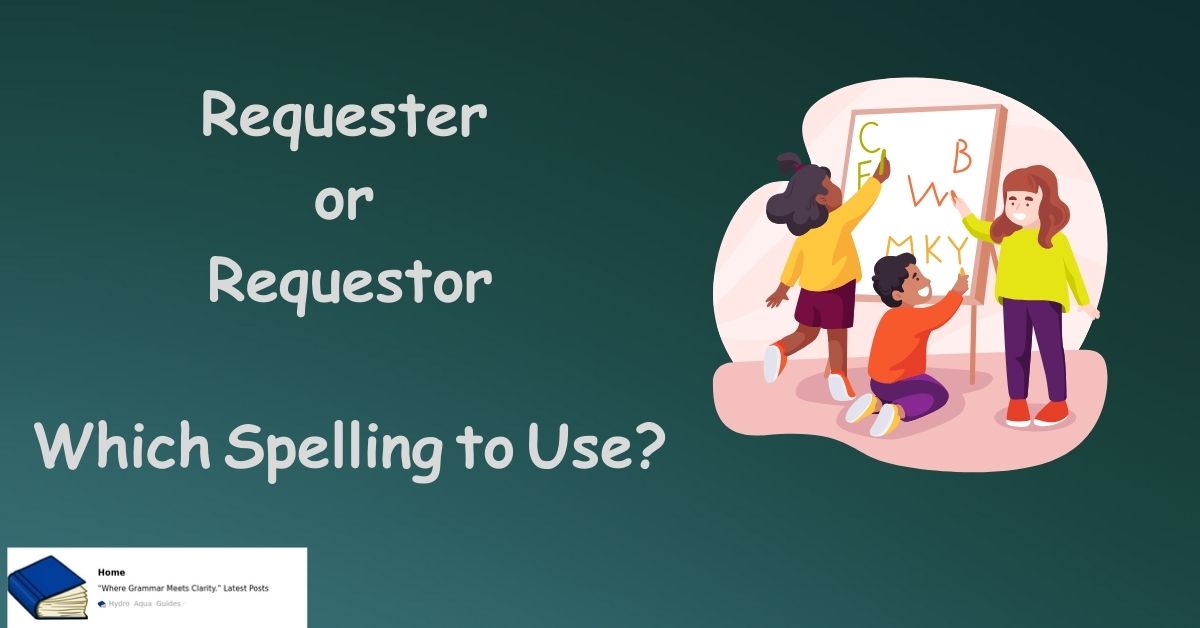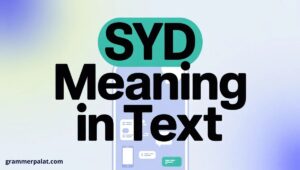If you’ve ever found yourself typing an email or drafting a formal document and paused to wonder, “Should I write requester or requestor?” you’re not alone. These two spellings often leave writers scratching their heads. The truth is, both forms are used, but they aren’t always interchangeable.
In this guide, we’ll break down the difference between requester and requestor, explore which spelling fits best in different contexts, and clear up the confusion surrounding this subtle yet important linguistic choice.
Understanding the Basics: What Are Agent Nouns?
Before we dive into “requester” and “requestor,” let’s take a step back and understand a key concept: agent nouns. These are words that describe someone who performs an action. For instance:
- Teach becomes teacher
- Act becomes actor
- Direct becomes director
- Request becomes… well, this is where the confusion starts: requester or requestor?
English typically adds the -er or -or suffix to form agent nouns, but there isn’t always a hard-and-fast rule about which to use. The choice often depends on usage trends, industry norms, or regional preferences.
Requester vs Requestor
At a glance, requester vs requestor may appear to be two spellings of the same thing. However, they can carry slightly different connotations, especially depending on the field of use. Here’s a breakdown:
| Word | Definition | Common Usage |
|---|---|---|
| Requester | Someone who makes a formal or informal request | General business, tech, customer service |
| Requestor | Someone who formally petitions or makes a request (often legal or official contexts) | Law, government, medical field |
So, while both terms essentially mean “someone who requests,” the difference lies in contextual preference and sometimes geographic usage.
Requester Definition
The word “requester” is more widely accepted in modern business English and appears frequently in technical documents, workplace communication, and software systems.
Examples of “requester” in a sentence:
- “The requester submitted the form online and waited for approval.”
- “Our system automatically notifies the requester once the service is scheduled.”
In everyday situations especially emails, forms, and project management tools requester is the more familiar and preferred spelling.
When to Use “Requester”
Use requester in these contexts:
- Customer service communication
- Software/system automation
- Internal company documents
- Business reports
- Emails and memos
If you’re unsure and you’re not in a legal or medical setting, go with requester.
Requestor Definition
The word “requestor” has a more formal and institutional ring to it. It’s often found in legal, government, or healthcare documents, where formality and precision are emphasized.
Examples of “requestor” in a sentence:
- “The requestor of the subpoena must provide adequate legal grounds.”
- “A healthcare provider must respond to the requestor within 30 days.”
Requestor Meaning in Legal Documents
In legal contexts, requestor is often the preferred term because of its long-standing use in:

If you’re dealing with contracts, official letters, or legal processes, consider using requestor.
Spelling Variations in English
One of the reasons English can feel like a maze of inconsistencies is because it pulls from many linguistic roots. Both -er and -or suffixes are correct, but they come from different origins:
- -er: Derived from Old English and Germanic roots
- -or: Derived from Latin, often seen in legal or academic terms
This split leads to common English spelling confusions such as:
- Adviser vs. Advisor
- Judgement vs. Judgment
- Licence vs. License (UK vs. US)
The case of requester or requestor fits perfectly into this pattern of spelling variations in English.
Is It Requester or Requestor in Business English?
If you’re writing emails, filling out forms, or creating documentation for the workplace, the safe bet is to use requester.
Why?
- It’s more common in business tools like Jira, ServiceNow, and Microsoft systems.
- It aligns with modern tech and business writing conventions.
- It’s more recognizable to a global audience.
Sample Usage
- “Hi Mark, the requester has been notified about the change in schedule.”
- “Please contact the requester directly for additional information.”
In short: when in doubt, use requester in a business context.
Should I Use Requester or Requestor in Legal Writing?
This is where it flips. In legal writing, requestor tends to be the more accepted spelling.
Why?
- Legal dictionaries often list requestor.
- Precedents in court documents use requestor.
- Formal petitions, government requests, and medical releases frequently use this form.
However, always follow the style guide of your firm or institution. Some legal teams may standardize one over the other.
Examples
Let’s look at how both terms are used in real-world scenarios.
1. Technical Support Email
- “Hi Sarah, the requester has added two more tickets to the queue.”
2. Legal Notification
- “The requestor must appear in court by the 15th of July.”
3. Government FOIA Form
- “The requestor has the right to appeal the agency’s decision.”
4. IT Service Desk Note
- “Notify the requester once the password reset is complete.”
5. Medical Record Disclosure
- “The hospital has 30 days to respond to the requestor of these medical documents.”
These examples show that both spellings are valid, depending on tone and context.
Requestor vs Requester Grammar
There is no strict grammatical rule that forces one to be correct over the other. This is a case of stylistic and contextual preference. However, style guides like APA, MLA, or Chicago Manual of Style often recommend:
- Use requester in everyday English and general usage
- Use requestor in formal or legal contexts
When creating formal documents, check if your organization or client has a standardized language preference.
What Does Requestor Mean Compared to Requester?
In terms of dictionary definitions, they’re virtually identical:
- Requestor: A person who makes a request
- Requester: A person who makes a request
The nuance lies in how each word is used, not what it means. This leads to subtle but meaningful differences in usage between requester and requestor.
Real People, Real Conversations
Imagine this scenario:
Email from IT Team: “Hey Jamie, the requester has been updated in the system.”
Versus:
Legal Letter: “Dear Mr. Hayes, as the requestor of the legal documents, please complete the form below.”
In both cases, someone is making a request. But the tone and audience shape the word choice.
The Final Verdict: Requester or Requestor?
So, which is correct: requester or requestor?
Both are correct but it depends on your audience, industry, and purpose. Here’s a quick cheat sheet:
| Use “Requester” When… | Use “Requestor” When… |
| Writing business emails | Writing legal or governmental documents |
| Filling forms in software systems | Drafting medical or HIPAA disclosures |
| Communicating with colleagues or customers | Submitting FOIA or legal petitions |
| Writing for tech or customer service contexts | Referencing law, policy, or regulations |
Conclusion
To sum it up:
- There is no absolute “correct” option between requester or requestor.
- Requester is preferred in modern business, tech, and general use.
- Requestor is more common in legal, medical, and official government contexts.
- Always consider your audience, context, and tone before making a choice.
By understanding the difference between requester and requestor, you’ll write more confidently and clearly, avoiding awkward missteps in formal or professional communication.
FAQs
Which is correct: requester or requestor?
Both are correct, but “requester” is more common in general English.
Is “requestor” more formal?
Yes, it’s typically used in legal and official contexts.
Can I use “requester” in emails?
Absolutely. It’s the preferred spelling in most business communication.
What does “requestor” mean?
It refers to a person who makes a formal request, especially in legal or governmental contexts.
How do I remember the difference?
Think “requester” for email and office work, and “requestor” for legal matters.
In the end, whether you’re a project manager, paralegal, or just someone proofreading an important document, understanding this subtle difference can make your writing more polished and professional.
So the next time you type “requester or requestor,” you’ll know exactly what to do.









